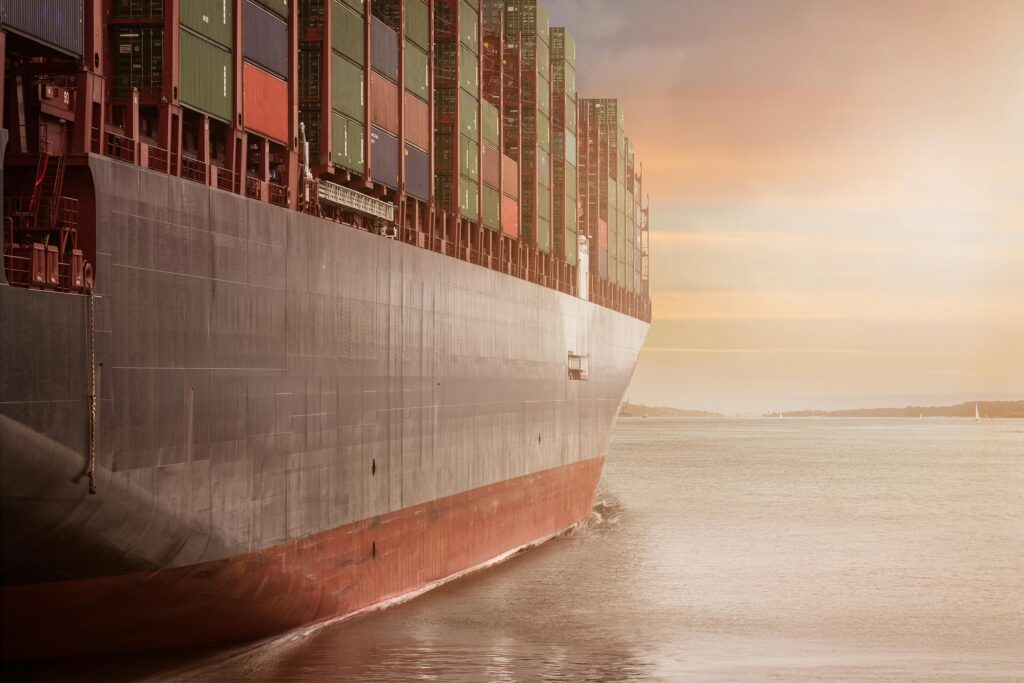Serious Consequences for Companies That Fail to Act. Is Your Company Ready?
The EU’s new Carbon Border Adjustment Mechanism (CBAM) is a key part of the Union’s strategy to reduce carbon emissions and ensure fair competition between domestic and imported goods. These requirements apply to all importers of CBAM-regulated goods, whether they are businesses or individuals. This includes all imports into the EU, even goods ordered online.
CBAM affects all businesses importing the following goods:
- Iron and steel products, and goods made from these materials, such as pipe fittings, profiles, and screws
- Aluminum and aluminum products
- Fertilizers (with some exceptions)
- Cement products (with some exceptions)
- Chemicals (currently limited to hydrogen)
- Electrical energy
There are ongoing discussions about including additional product categories, such as plastics. Certain exceptions exist, such as goods with KN numbers not listed in the CBAM regulation and imports valued under 150 EUR.
But what does this mean for your business, and how can you ensure compliance?
The Transition Period: Preparing for the Future
The EU introduced CBAM in May 2023, with the aim of applying an additional carbon fee on imported goods that have not already paid for their emissions during production. During the ongoing transition period, from 2024 to 2025, the EU is collecting emissions data from importers to determine the final tariffs to be implemented in 2026.
Starting in early 2024, Swedish companies importing CBAM goods were required to report climate data for imports made in the last quarter of 2023. This requirement was enforced even if detailed information was not available, as default values could be used. However, the rules have become stricter as of July this year.
Stricter Rules from Summer 2024
Since summer, importers are now required to report actual emissions figures for all imports made during the third quarter of 2024. The deadline for submitting this report is October 31st. It’s important to note that direct customs agents cannot handle the reporting under CBAM regulations, even if they usually manage all the administrative work related to customs declarations.
To avoid issues, it is crucial to ensure that you have access to the necessary climate data from your supplier or manufacturer before making any purchases or imports, in compliance with CBAM regulations. If a non-EU manufacturer refuses to share their emissions data, the importer must demonstrate that they have made every effort to obtain this information. This is a clear indication that the EU is striving for greater transparency and accountability.
What Does This Mean for the Future?
By 2026, all importers of CBAM goods must apply for import authorization. This permit is essential to continue importing goods into the EU. Without authorization, imported goods may be stopped at the border, and companies could face significant costs, whether the goods are stored, destroyed, or returned.
The National Authorities responsible for granting import authorizations, will conduct a thorough review of the company’s financial standing and compliance with CBAM regulations. Companies that violate EU rules or have been involved in economic crimes will be excluded, further emphasizing the importance of compliance.
How Chemity Can Assist
At Chemity, we are working to integrate CBAM management into our system, offering companies an efficient and user-friendly solution to ensure compliance with the new requirements before making purchases. Our solution will make it easy for you to identify which of your products will be subject to CBAM regulations and to collect the necessary climate data from your suppliers. The system will provide you with a real-time overview of compliance for your products and facilitate the reporting of relevant information to the CBAM-portal through a seamless system-to-system solution. This will minimize the risk of issues at customs and enhance your competitiveness in the market.
Summary
CBAM introduces new challenges for businesses importing goods into the EU, but with the right preparations, these challenges can be managed. A crucial step is to ensure that you obtain all the necessary information from your supplier or manufacturer in accordance with CBAM regulations before purchasing and importing goods. By staying updated with the regulations and using tools like Chemity’s upcoming CBAM management solution, companies can ensure they meet the EU’s requirements and continue to compete in the European market.
Useful links
https://taxation-customs.ec.europa.eu/carbon-border-adjustment-mechanism_en#guidance

